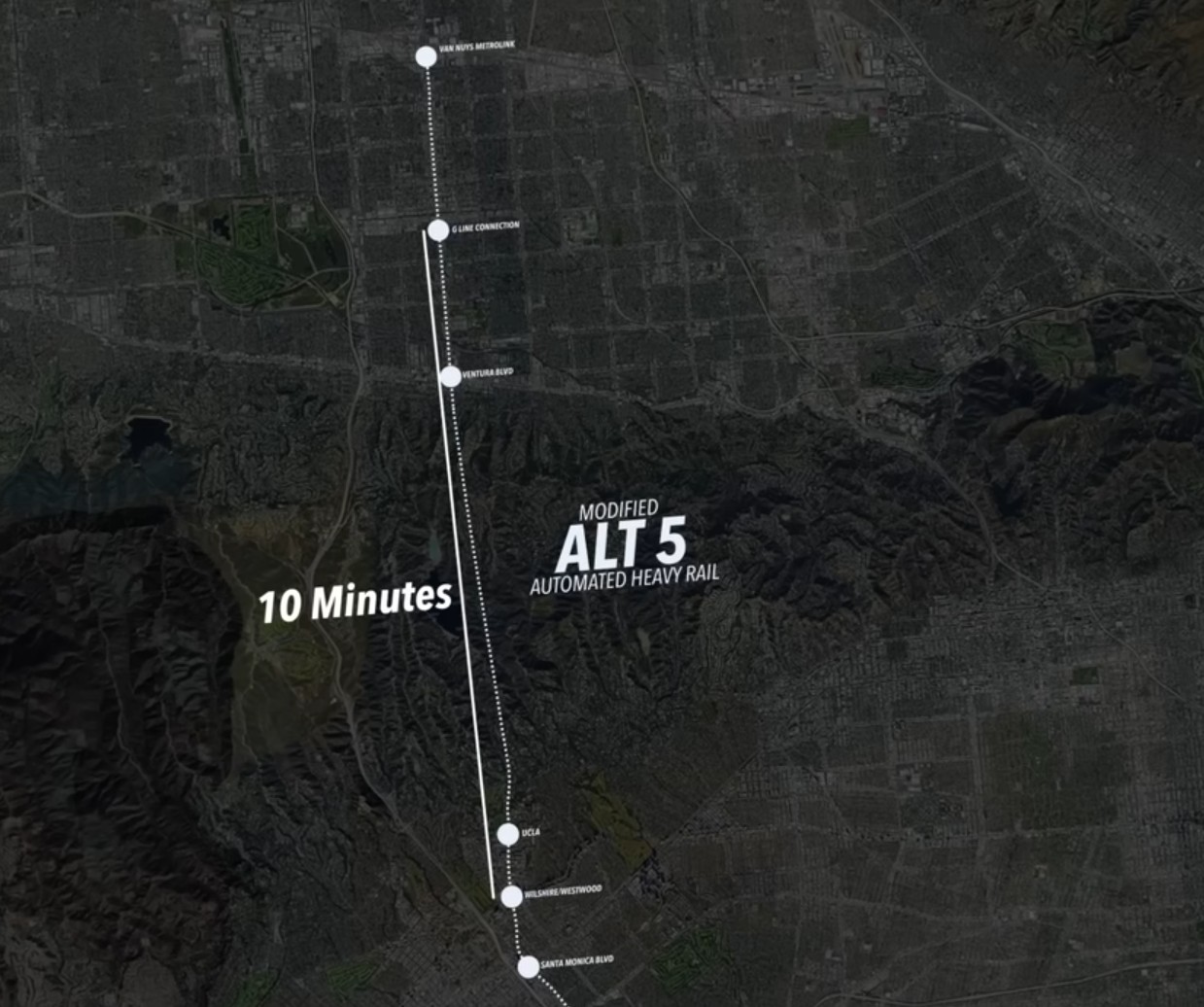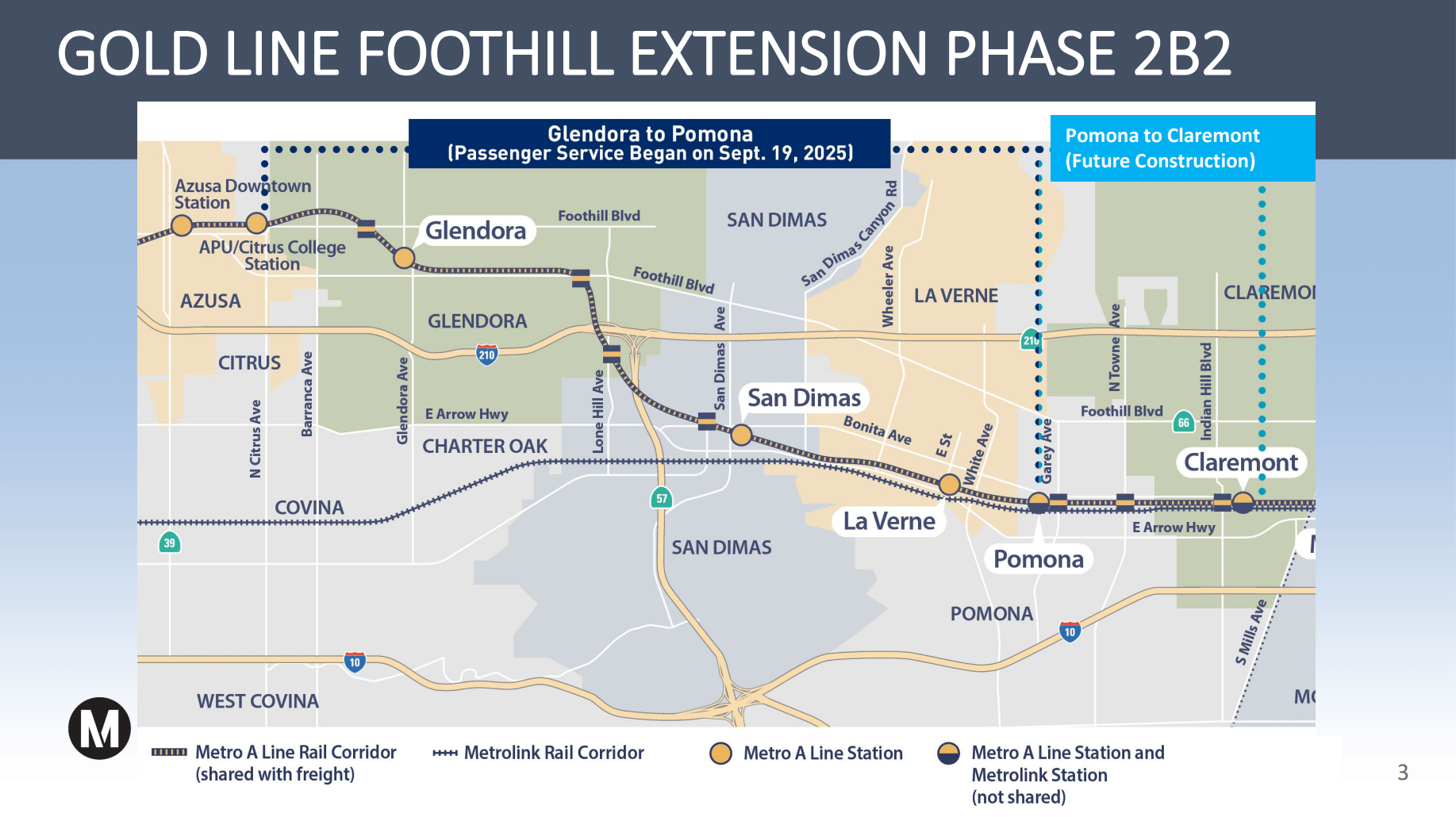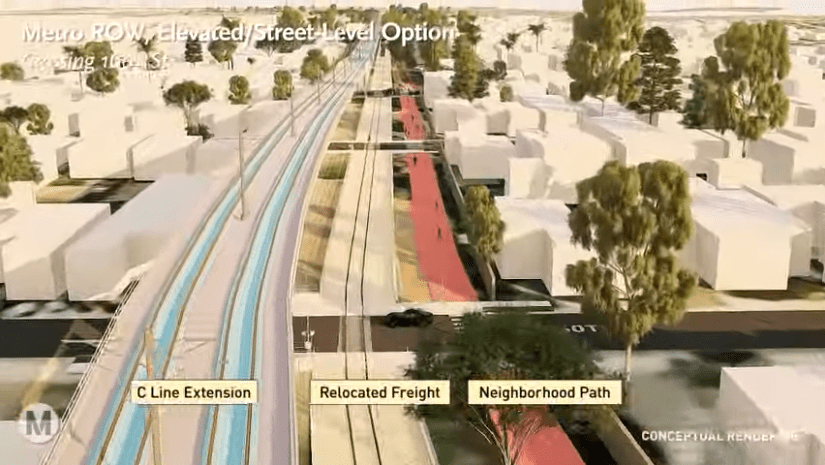
When entering Metro CEO Art Leahy's office, you can't help but notice that he's a sports fan and a native Angeleno. His wall is decorated with USC football paraphernalia and his bookshelf has a couple of Los Angeles Dodgers bobbleheads and other memorabilia from Dodgertown. When staff that happened to graduate from UCLA are in the room, they get ribbed. I also took some flack that my choice in favored baseball teams was also lightly mocked.
And Leahy appreciates what it means to be an Angeleno. "In Los Angeles people have vision and a belief in exceptionalism. When I say that Los Angeles is the best city in the world and I want it to have the best transit agency people don't bat an eye."
And what does the best transit system in America look like? Leahy professed no favorite project when I asked him if he had a favorite Measure R project, but did get excited and animated when we talked about bus routing. In Leahy's view, Metro's biggest challenge include making the buses run on time, and that buses that arrive and leave early are a bigger problem than those that run late.
"Our schedules are a contract with our customers. And if a bus leaves at 8:41 when it's supposed to leave at 8:42 that's breaking that contract. A bus that leaves a minute early is worse than one that leaves a minute late because someone is going to be waiting much longer than a minute for the next one and it can throw off the entire system. "
Leahy went on to explain that early leaving buses are going to be getting less and less people every time it stops while the other buses trailing are going to get more and more people. The increased boardings and alightings will leave the second bus running farther and farther behind schedule. All because one bus was early, the entire line can be thrown off for hours.
"Think about it this way. If a bus is one minute early on a five minute headway, and the bus behind is late for some reason, that second bus could have 40% more passengers than the one before it. Those passengers are going to think we need more buses, more service; but better service that runs on time would accomplish the same thing."
As a driver, Leahy himself wasn't immune to running ahead of schedule, but he tried not to. He even has a copy of a citation he received for running early framed behind his desk. According to Leahy, 15% of Metro buses actually run ahead of schedule, a number he and his staff are working on lowering. While the passage of Measure R brings new opportunities to Metro, it also requires that staff work harder to, in Leahy's words, "to be worthy of the public trust."
"We need to constantly be working. Constantly be thinking. The public trusted us, and we have to be constantly doing everything we can to be worthy of that."
The other major obstacle facing Metro, and every other transit agency, is funding.
"We're looking at zero state subsidy next year. And that means a $250 million dollar defecit. We're ok for the next 12 months, but after that we could be looking at making some changes."
 Leahy, on the right, poses with a bunch of cartoon characters and Bart Simpson. Photo: Blogdowntown
Leahy, on the right, poses with a bunch of cartoon characters and Bart Simpson. Photo: BlogdowntownPeople seem fascinated with the "local boy makes good" angle of Leahy's story. Leahy, the son of two transit drivers and himself a bus driver in Los Angeles who rose to become the head of the transit agency in the second largest city in the United States. However, according to Leahy, the choice to come back to run Metro wasn't about coming back to where he started.
"It's always great to come home, but I took the job because it's impossible to turn down one of the few jobs in the world where you can make a difference on a grand scale," Leahy responded to the numerous articles that focus on his return to Los Angeles."
We also talked about Leahy's tendency to walk to meetings when he has a chance.
"I'm not anti-car by any stretch, and I don't want to tell you that I'd never take a car if I were running late…but my first day here I had a meeting with the Mayor and people seem shocked that I wanted to walk to City Hall. Three different times I was told there was a car available, but it's just a couple blocks away. There is a time when it doesn't make sense to drive."
As for his own transit and driving habits…
"I take transit here for the most part. It's been three months now and I've driven in twice."
People that are familiar with Streetsblog interviews know that I always end by asking what, if anything, they would change about transportation in Los Angeles if they had a magic wand. Usually this question is one that gives people pause, but Leahy had a quick answer.
"I would want full federal funding for the Subway to the Sea and the Downtown Connector. Not only would we get those projects done as quickly as possible, but we'd also be able to do everything else that we want to do with the other money we'd save."
(editor's note: If you have ever read one of my interviews before, you've probably noticed the format is a little different for this one. Blame a lost tape recorder and my first time transcribing from short-hand. We'll be back to our usual format for the rest of this week's interviews.)






